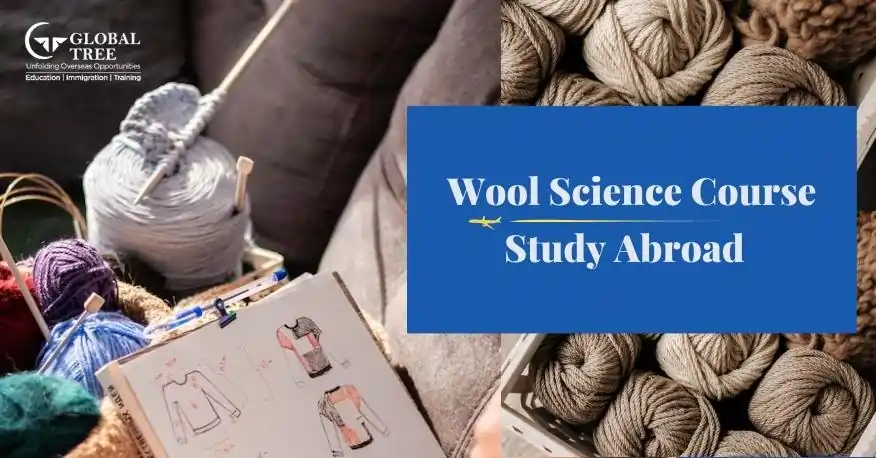Study Wool Science Course Abroad

Introduction
Studies in wool science are intended to equip students with the knowledge and abilities necessary to work in the wool industry's production, harvesting, preparation, marketing, manufacturing, and processing processes.
The various certifications help students comprehend the wool classification, production, and processing abilities and technical knowledge that satisfy the needs of the wool supply chain, the market, and the customers. Students also study how to maximise profit throughout the supply chain for wool.
Graduates in the wool sciences might anticipate careers in consultancy, regulation, and research across the commercial and public sectors of agriculture. Choose the Best Wool Science Course & Colleges to Study Abroad. Access to a variety of jobs is available, including large-scale rangeland farming, high-input grazing, and feed lotting.
Who is eligible to study Wool Science Course Abroad?
The wool fibre, structure, chemistry, and physics are all thoroughly examined in the studies on wool. They also look at the effects of the physics, chemistry, and structure of the wool fibre on the characteristics and advantages of wool products. To improve the student's knowledge and comprehension of proper wool preparation, basic wool science principles, market structure, and domestic and international issues that affect the wool business will be taught.
Understanding the behaviour of the wool fibre from the start will make it simpler to comprehend the processing of wool and the performance of the resulting goods. The Wool Science degree's objective is to supply the wool industry with professionals who are knowledgeable and skilled in wool production, harvesting, preparation, marketing, manufacturing, and processing.
How much does it cost to study Wool Science Course Abroad?
Many bachelor’s degrees offered by the world’s top universities, notably in Australia, include studies in wool science. The annual cost of a Bachelor of Science with Honors degree is approximately $31,600. Students typically pay $34,000 per year for postgraduate study. Students around the nation can now access individual courses from the 4-year specialized degree in animal and wool science that was previously only offered in person.
What is the Future Scope of the Wool Science Course Abroad?
Working in the wool industry can help you build a successful career in a number of different disciplines, such as management, storage, and logistics.
The introduction of technology in the wool production sector has sped up the development of spinning and weaving tools, increasing global garment sales. Population increase and urbanization are two factors that have contributed to the rise of the wool market. Students who are interested in a career in the wool sciences, therefore, have a variety of options available to them.
Career options for graduates of wool science
Graduates of wool science programs might anticipate careers in commercial and public sectors in advising, regulatory, and research roles across all agricultural industries. There are numerous occupations available, ranging from extensive rangeland farming to high-input grazing and feed lotting.
Trending Career Options in Wool Science Abroad
Wool handling, secure storage, coring, receiving, and dispatching are all tasks that fall within the purview of wool classers and storekeepers. Additionally, they help with stock takes and other retail employee tasks.
(Read more: list of top universities master's in Agriculture to Study Abroad)
Career as an Operations Manager
With an emphasis on forming alliances with wool farmers, wool operations coordinators are largely involved in customer marketing and assistance with wool sales.
Career as a Buyer of Wool
It is the responsibility of wool buyers to inspect and purchase wool at auctions and other markets. They use their expertise to evaluate various kinds of wool, process bulk-class bales, and buy wool at the door.
Career as a Purchasing Coordinator
The responsibility of receiving and transporting wool to various sites falls to wool supply coordinators, who must be effective communicators.


